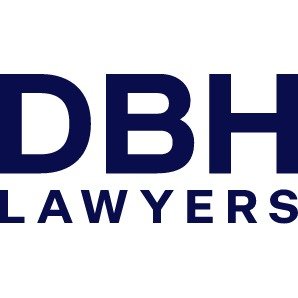Best Franchising Lawyers in Salisbury
Share your needs with us, get contacted by law firms.
Free. Takes 2 min.
List of the best lawyers in Salisbury, Australia
About Franchising Law in Salisbury, Australia
Franchising in Salisbury, Australia, is governed by a comprehensive set of regulations designed to protect both franchisors and franchisees. The framework ensures transparency and fairness, with the Franchising Code of Conduct serving as the principal legal document outlining responsibilities and rights. As part of the Adelaide metropolitan area, Salisbury is subject to both national legislation and specific local business ordinances that impact how franchises operate. Understanding the intricacies of these laws is crucial for anyone involved in a franchising relationship.
Why You May Need a Lawyer
Engaging a lawyer with expertise in franchising can be essential in several situations:
- Reviewing and negotiating franchise agreements to ensure fair terms.
- Ensuring compliance with the Franchising Code of Conduct and any local regulations.
- Resolving disputes between franchisors and franchisees.
- Guidance on terminating or transferring franchise agreements.
- Protecting intellectual property associated with the franchise.
- Understanding financial disclosures and assessing the viability of the franchise business.
Local Laws Overview
Salisbury, while adhering to the national Franchising Code of Conduct, also imposes local business regulations that franchise businesses need to consider. Key aspects include:
- Compliance with Zoning Laws: These laws dictate where certain types of businesses can be located.
- Business Licensing Requirements: Specific licenses may be required to operate certain types of franchises.
- Employment Regulations: Local employment laws affecting hiring practices, worker safety, and wage rates.
- Consumer Protection Laws: Regulations ensuring that consumer rights are safeguarded, impacting aspects of franchise operations such as advertising and product safety.
Frequently Asked Questions
What is the Franchising Code of Conduct?
The Franchising Code of Conduct is a mandatory industry code that outlines the rights and responsibilities of franchisors and franchisees across Australia. It provides guidelines on disclosure, relationship conduct, and dispute resolution.
Do franchise agreements require legal review?
Yes, it's advisable. Legal review ensures the terms are fair and compliant with franchise laws. Lawyers can help identify any potential risks or obligations that may not be immediately apparent.
What should I look for in a franchise agreement?
Key elements include initial investment costs, franchisor support, territory rights, renewal terms, termination conditions, and any restrictions on sale or transfer.
Who can operate a franchise in Salisbury?
Any individual or business entity meeting the franchisor's requirements and complying with local regulations can operate a franchise in Salisbury.
Can a franchise agreement be terminated early?
Yes, but specific conditions must be met, such as mutual agreement, breach of contract, or if the franchisee wishes to terminate within a cooling-off period stipulated by the Franchising Code.
How are disputes resolved between franchisors and franchisees?
The Franchising Code mandates mediation as a first step for dispute resolution before pursuing legal action. This process is less formal and can be less costly than court proceedings.
What are the implications of non-compliance with franchising laws?
Non-compliance can result in penalties, fines, and reputational damage. It may also lead to the termination of franchise agreements.
Are there financial support options available for franchisees?
Financial institutions may offer loans tailored for franchise businesses. Additionally, some franchisors provide in-house financing or support arrangements.
How does a franchisor provide training and support?
Support typically includes initial training, ongoing professional development, marketing materials, and operational guidance to ensure the franchise aligns with brand standards.
Is it possible to change the terms of a franchise agreement?
While it may be challenging, changes can be made through negotiation and mutual consent between the franchisor and franchisee. However, this might not always be feasible depending on the contractual terms.
Additional Resources
Here are some resources that could be helpful for anyone requiring legal advice on franchising:
- Australian Competition and Consumer Commission (ACCC): Manages compliance with the Franchising Code of Conduct.
- The Franchise Council of Australia (FCA): Offers information and resources for franchises at all levels.
- South Australian Office of Business and Consumer Affairs: Provides advice on state-specific franchising regulations.
- Local Chamber of Commerce: Offers networking opportunities and support for local franchise businesses.
Next Steps
If you require legal assistance with franchising in Salisbury, consider the following actions:
- Contact a Local Franchise Lawyer: Seek out legal professionals specializing in franchising for personalized advice.
- Consult Industry Associations: Engage with the FCA or similar organizations for recommendations and resources.
- Attend Workshops and Seminars: These events can provide crucial insights and networking opportunities with other franchise leaders and legal experts.
- Gather Relevant Documentation: Before meeting with a lawyer, ensure all necessary documents and agreements are organized for review.
Lawzana helps you find the best lawyers and law firms in Salisbury through a curated and pre-screened list of qualified legal professionals. Our platform offers rankings and detailed profiles of attorneys and law firms, allowing you to compare based on practice areas, including Franchising, experience, and client feedback.
Each profile includes a description of the firm's areas of practice, client reviews, team members and partners, year of establishment, spoken languages, office locations, contact information, social media presence, and any published articles or resources. Most firms on our platform speak English and are experienced in both local and international legal matters.
Get a quote from top-rated law firms in Salisbury, Australia — quickly, securely, and without unnecessary hassle.
Disclaimer:
The information provided on this page is for general informational purposes only and does not constitute legal advice. While we strive to ensure the accuracy and relevance of the content, legal information may change over time, and interpretations of the law can vary. You should always consult with a qualified legal professional for advice specific to your situation.
We disclaim all liability for actions taken or not taken based on the content of this page. If you believe any information is incorrect or outdated, please contact us, and we will review and update it where appropriate.








